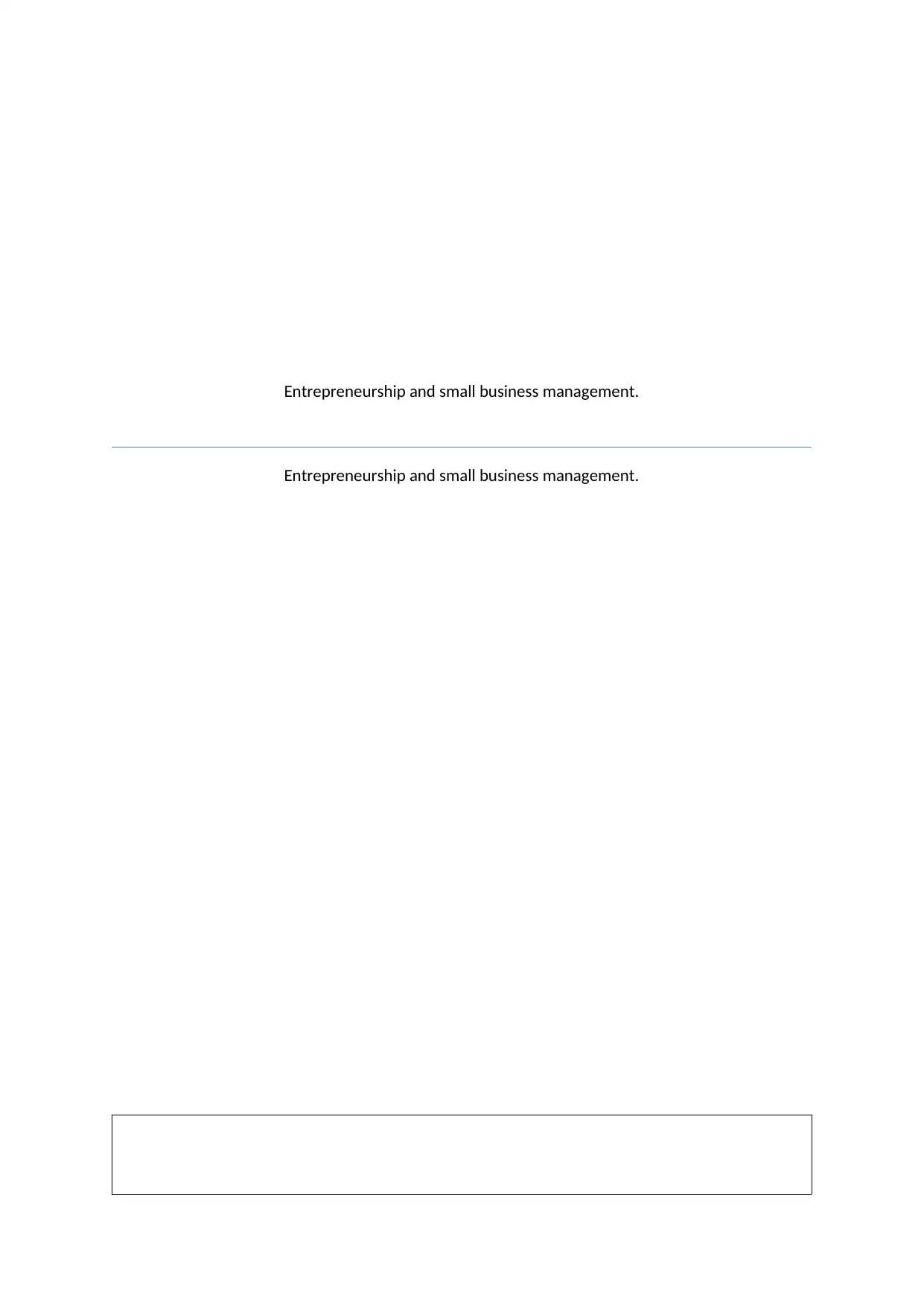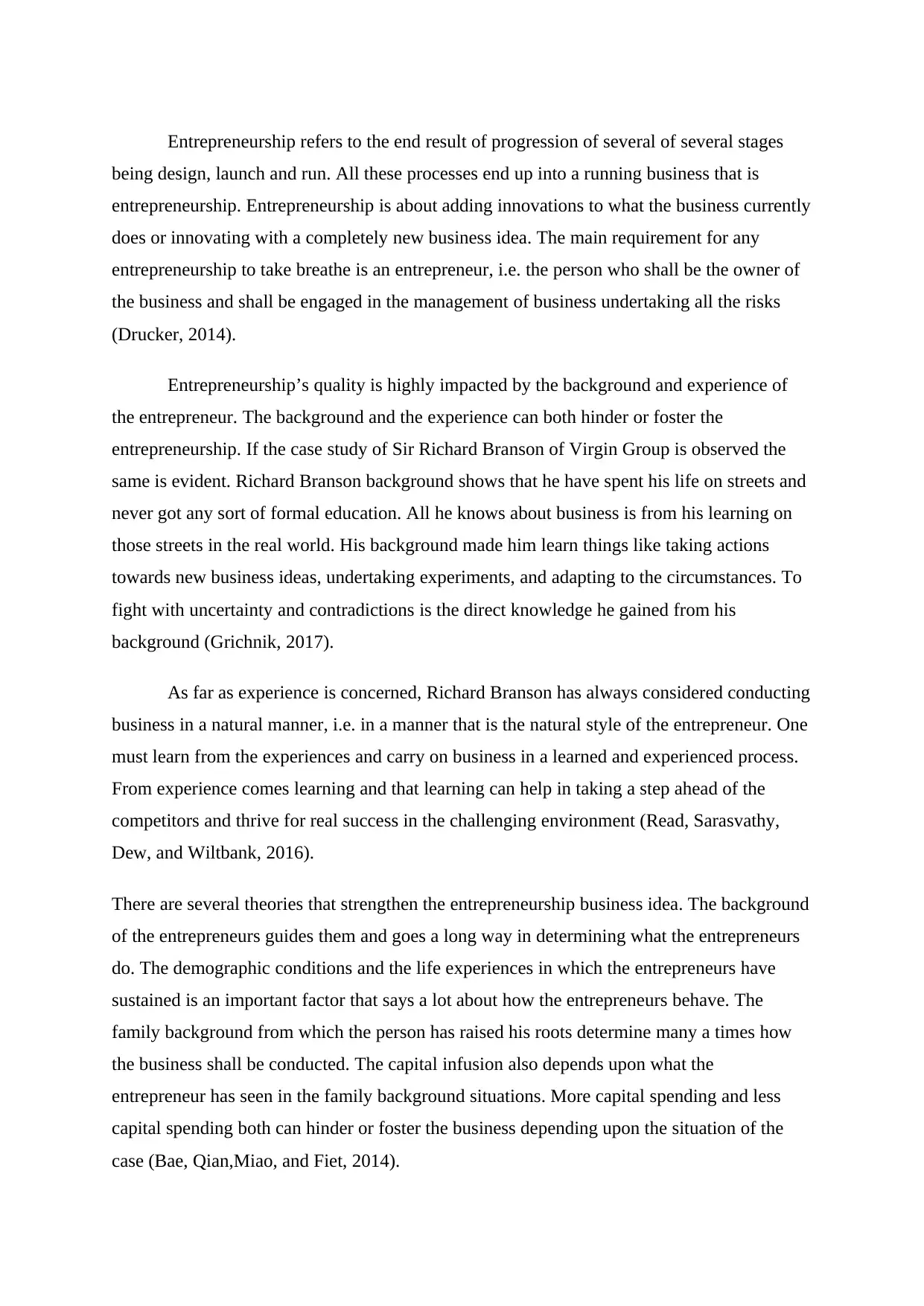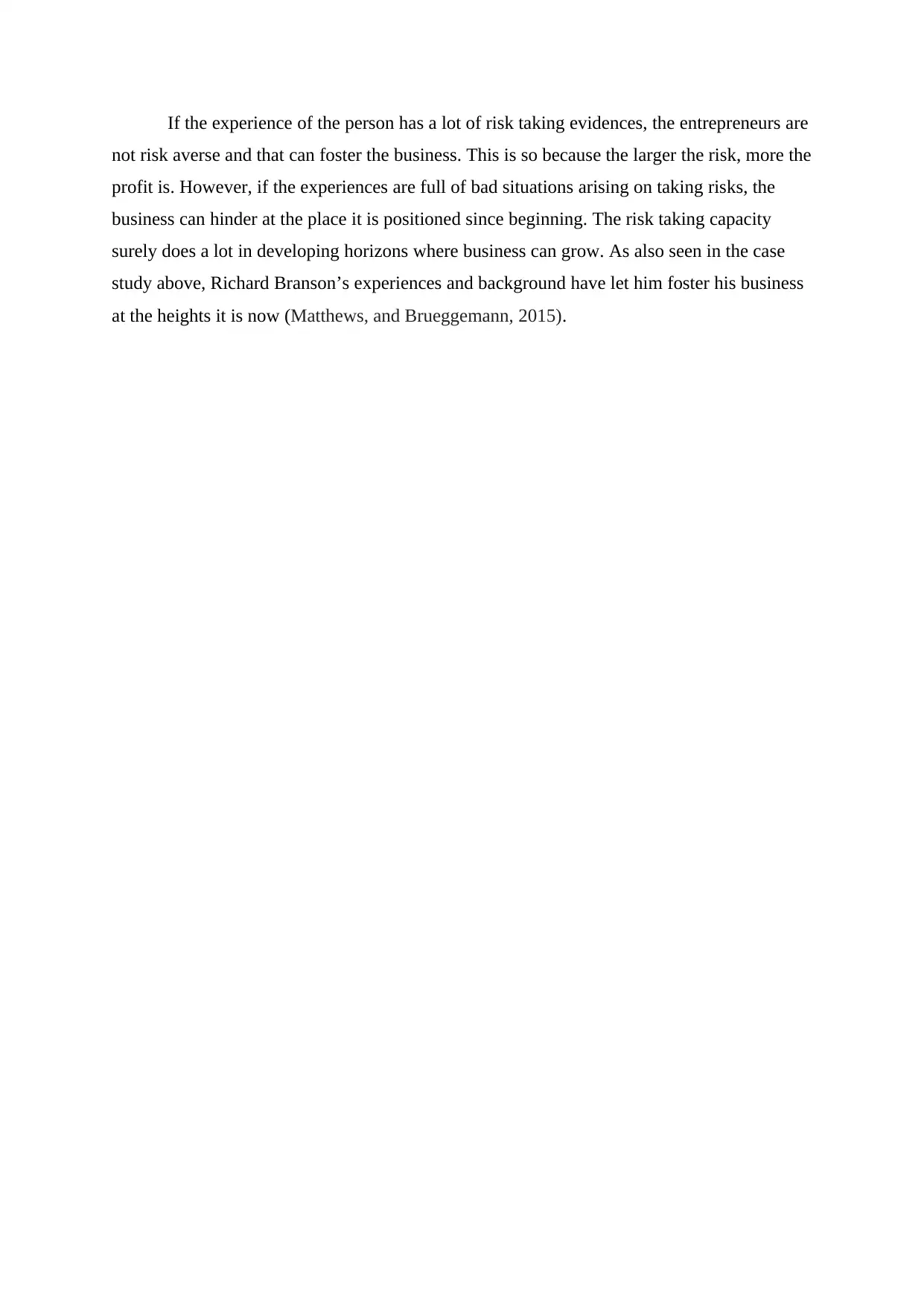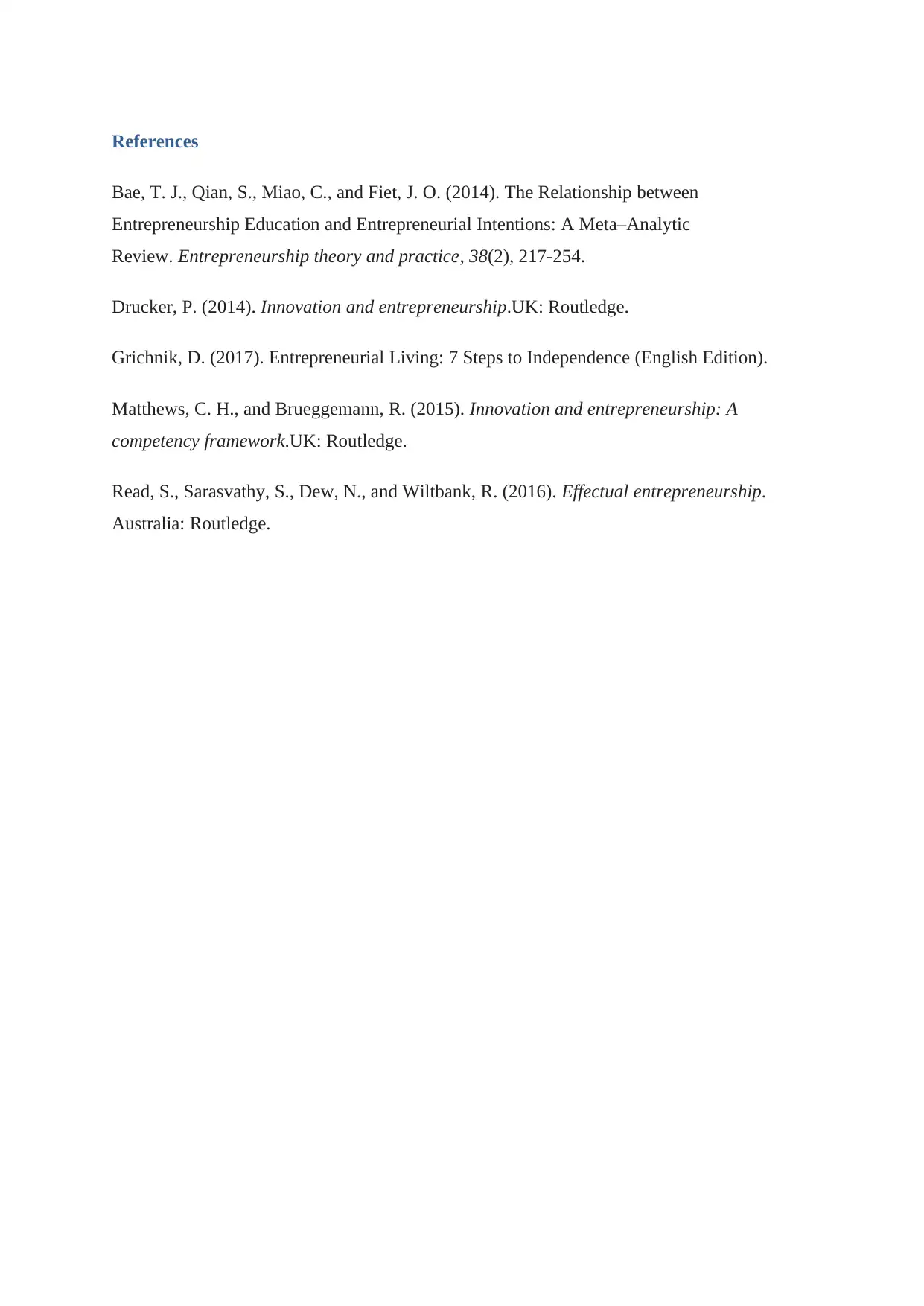Entrepreneurship Report: Theories, Case Study and Background Analysis
VerifiedAdded on 2023/05/30
|4
|710
|425
Report
AI Summary
This report delves into the multifaceted world of entrepreneurship, commencing with a foundational definition and an exploration of its core components: design, launch, and operational phases that culminate in a running business. It highlights the significance of innovation, both in terms of introducing novel business concepts and enhancing existing ones. The report emphasizes the pivotal role of the entrepreneur, the individual who not only owns the business but also assumes all associated risks and responsibilities. The quality of entrepreneurship is substantially influenced by the entrepreneur's background and experience, as exemplified by the case of Sir Richard Branson of the Virgin Group. Branson's unconventional background, devoid of formal education, coupled with his street-smart business acumen, has equipped him with the ability to embrace new ideas, experiment, and adapt to uncertainty. The report also examines various theories underpinning entrepreneurship, underscoring the impact of demographic factors, family background, and risk-taking experiences on entrepreneurial behavior. The report provides insights into how entrepreneurs navigate the complexities of business management, capital infusion, and the role of experience in shaping their approach. References to key academic sources are included.
1 out of 4










![[object Object]](/_next/static/media/star-bottom.7253800d.svg)